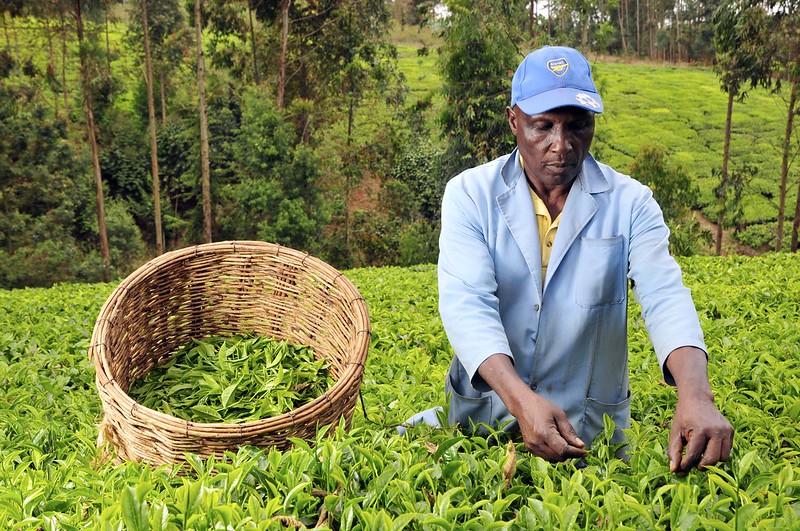Highlights:
- Kenya’s Tea Exports Slump 18%
- Key Markets Struggle
- Tough Times Due to Global Economic Downturn
Kenya’s tea exports have seen a significant decline of 18% in the first seven months of 2023 compared to the same period last year. This decrease in export volumes can be attributed to challenging global economic conditions, as reported by the Tea Board of Kenya (TBK) on Friday in Nairobi, the country’s capital.
According to the TBK’s industry report, Kenya exported 224,807 tonnes of tea during this period, marking a decrease from the 274,830 tonnes recorded in the same timeframe in 2022. Notably, key markets for Kenyan tea, including Russia, Sudan, and Iran, have either reduced their participation in the country’s tea auctions or completely abstained.
For instance, Russia only purchased 8 tonnes of Kenyan tea between January and July, while Sudan and Iran abstained from participating in auctions during certain months.
The TBK has attributed this decline in tea exports to the ongoing global recession, primarily influenced by the Russia-Ukraine crisis and recent armed conflicts in Sudan, which have affected major tea markets.
Furthermore, Kenya has been grappling with the impact of decreasing tea prices in the global market. The TBK reported that the average price for a kilo of tea during this period was $2, down from $2.4 the previous year.
Despite these challenges, Kenya has benefited from a weaker shilling against the dollar. This has led to an increase in earnings from tea, with the country’s income rising to $671 million in the first seven months of 2023, up from $620 million during the same period in 2022.
Tea remains a significant foreign exchange earner for Kenya, alongside coffee, tourism, and horticulture, with the country earning $990 million from this cash crop in 2022.




















